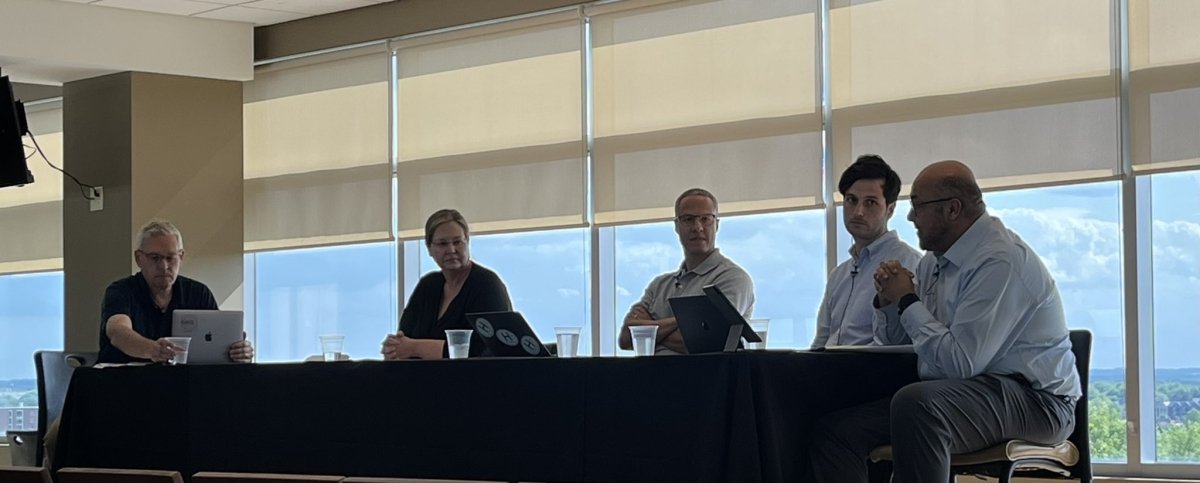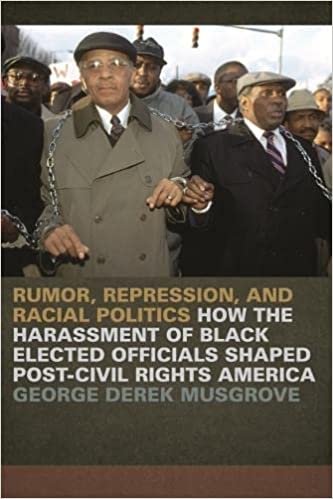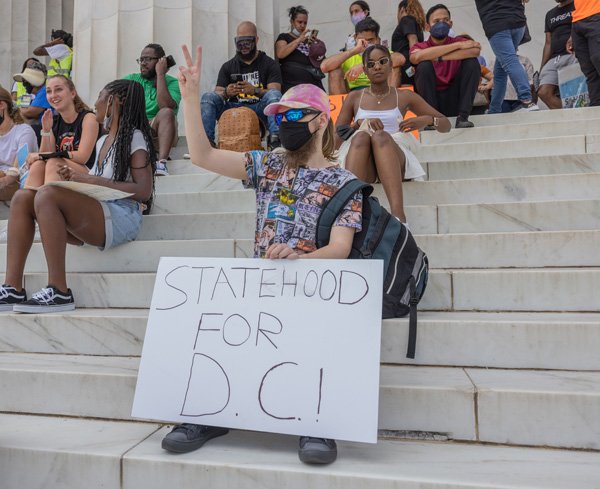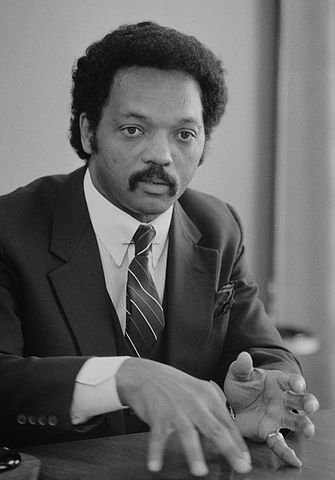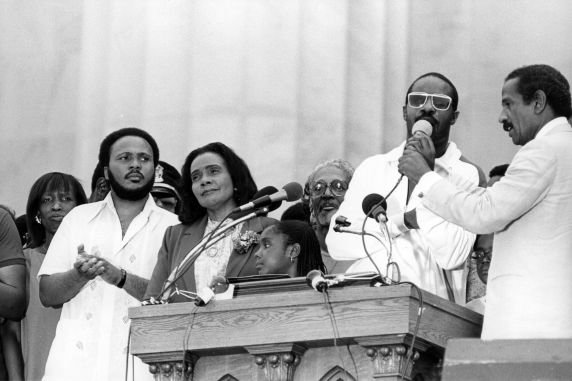Past, Present, Future
As the Jan. 6 inquiry goes primetime, we put the American Republic on trial. The results are mixed.
Read
Coming to you live this week from the American Political History conference at Purdue University, it’s our season finale. Will and Siva speak with three historians — Liette Gidlow, Derek Musgrove and Thomas Zimmer — about the past, present and future of government by the people. Our guests ponder the Jan. 6 hearings, D.C. statehood, social mobilization and the structural problems of the Constitution itself. Did America’s founders sign democracy’s death warrant at its birth?
Meet
Liette Gidlow is a professor of history at Wayne State University. She focuses on women’s suffrage and African American electoral politics. Gidlow is the author of The Big Vote: Gender, Consumer Culture, and the Politics of Exclusion, 1890s–1920s (Johns Hopkins University Press, 2004) and editor of the volume Obama, Clinton, Palin: Making History in Election 2008 (University of Illinois Press, 2012). Her forthcoming book is The Nineteenth Amendment and the Politics of Race, 1920-1970. Gidlow served as a Mellon-Schlesinger Fellow at Harvard University’s Radcliffe Institute for Advance Studies and as a legislative staffer Congress. Follow her on Twitter @ProfGidlow.
George Derek Musgrove is a historian at the University of Maryland–Baltimore County. He is the author of Rumor, Repression, and Racial Politics: How the Harassment of Black Elected Officials Shaped Post-Civil Rights America (University of Georgia Press, 2012), and he co-authored, with Chris Myers Asch, Chocolate City: A History of Race and Democracy in the Nation’s Capital (UNC Press, 2017). Musgrove recently curated a web-based map of Black Power activism in Washington, D.C., from 1961 and 1998 and is working on a book about the Black Power movement in the 1980s and ’90s. He was a 2022 Carnegie Fellow. Follow Musgrove on Twitter @gdmusgrove.
Thomas Zimmer is a visiting professor of history at Georgetown University’s Walsh School of Foreign Service. He is also a regular columnist for the Guardian’s U.S. edition. Earlier he taught contemporary history at the University of Freiburg. Zimmer’s doctoral thesis received the German Historical Association’s award for Best Dissertation in the Field of International History and formed the basis for his first book, Welt ohne Krankheit: Geschichte der Internationalen Gesundheitspolitik 1940–1970 (“World Without Disease: A History of International Health Policy, 1940 to 1970”; Wallstein Verlag, 2017). Follow Zimmer on Twitter @tzimmer_history.
Gidlow’s The Big Vote looks at how activists in the 1920s — especially newly enfranchised women — set out on a massive voter turnout campaign after Americans had dropped out of the political process in record numbers.
Take a sneak peek at her current research on race and gender politics in that era, and over the last century, in this 2020 symposium from the John W. Kluge Center at the Library of Congress.
Drawing on 25 interviews with current and past black members of Congress, Musgrove shows how over the course of three decades they withstood disproportionate degree of surveillance, intimidation and investigations — in Rumor, Repression, and Racial Politics.
He traces Black Power activism throughout that period in an interactive map. Visit the project’s portal hosted by UMBC.
Zimmer has written widely on threats to democratic institutions in Europe and America, especially where public health is concerned. World Without Disease offered some important reminders about the politics behind the founding of the World Health Organization after World War Two.
His recent columns in the Guardian have considered the significance of the Supreme Court’s looming decision on Roe v. Wade, the real agenda of so-called “nice” Republicans, and the GOP’s love affair with extremist politicians.
You may remember Zimmer first joined the show in Season Two, to discuss political turmoil in his native Germany — on “Der Noisy Fringe.”
Learn
The Republican Party is inflexibly opposed to awarding national representation to residents of the Democratic-leaning District of Columbia or America’s most populous colony, Puerto Rico. But as historian Heather Cox Richardson explains in the Atlantic, the GOP solidified its power in the first place by expanding statehood, in the late 19th century.
During the Reagan era, black civil rights leaders like Jesse Jackson kept alive Martin Luther King’s dream of social and economic equality. Flash back to Jackson’s speech at the 20th Anniversary of the March on Washington, in 1983. And read the Washington Post’s archived coverage of that event.
The charismatic Stevie Wonder — artist and global citizen — fought for black equality alongside Jackson and pushed for MLK’s birthday to become a national holiday, as Musgrove discusses on this episode.
New York Times columnist Jamelle Bouie has argued that the first successful movement for black power, following after the Civil War, was extinguished in the white Southern movement for “redemption.”
In a 2016 memoir called The Third Reconstruction, the Rev. William J. Barber II takes a more optimistic view. Barber led thousands of people in pro-democracy rallies across North Carolina in 2013 in what became known as “Moral Mondays.” Grassroots mobilization, he says, can still work to preserve civil rights across America.
The United States celebrated 100 years of women’s suffrage in 2020, the year in which black women in particular mobilized to oust Donald Trump from office. But women’s rights are, arguably, under greater pressure than they have been in half a century. Check out our earlier episode on reproductive health and gender politics.
While discussing the U.S. economy on his show recently, Fox’s Tucker Carlson invoked the 20th-century predicament of Weimar Germany, the failed German republic that collapsed as Hitler rose to power. Zimmer suggests that such references are a reactionary code in support of a white, theocratic, masculinist rule.
What that might look like in practice was — let’s be real — on full display in the insurrection of Jan. 6, 2021. Can the ongoing hearings in the U.S. House dial down such forces? The Brennan Center for Justice has an early assessment of their impact.
Heard on the Show
You may have recognized two voices in the audience Q&A on this episode: Nicole Hemmer, who joined us on our inaugural show, again in Season Two, and for a special episode marking the anniversary of the Jan. 6 assault; as well as Natalia Petrzela, who appeared on a show we did this earlier season on the state of America’s education system — called “Learning Curbed.”
Two other distinguished listeners asked questions during our live taping: Anna O. Law of Brooklyn College, part of the City University of New York; and Kimberly Hamlin, of Miami University in Ohio.









